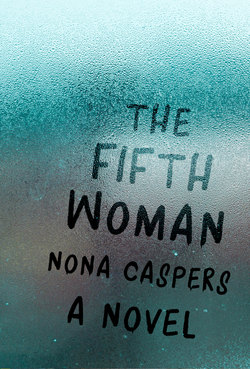Читать книгу The Fifth Woman - Nona Caspers - Страница 11
На сайте Литреса книга снята с продажи.
ОглавлениеTWO CLEAN THINGS
There is a kind of wailing that sounds like singing. It comes from the hollow parts of the skull, and from the roots of the hair, and even from the thumbnails.
I was living in a third-floor studio apartment on a block that was said to have had the highest crime rate in the City. Even on the third floor the landlord, who lived across the country, had placed bars on the windows. Some of the bolts attaching them to the building had rusted and broken, and so bars were missing here and there. Whenever I left the building, I wore an oversized coat and knit watchman’s cap with my hair shoved inside so you couldn’t tell I was a young woman. There was an alley off one side that the tenants unironically called “toilet alley,” and it was also useful for selling drugs and sex, dumping garbage, and occasionally, or so I had been told, for dying. I had moved into the apartment over the alley after Michelle died; I wanted to live alone—I wanted to be alone—and after three months of looking I realized a place with bars on the windows and stains on the carpet was all I could afford. Across the alley stood a rooming house. My apartment over the alley had one window that faced the alley, though I could see the main street from an angle, and for two hours on late afternoons the sun blasted through. Monday through Friday I walked up Market Street to my job and down Market Street from my job. On weekends I worked on my literature thesis. At night I ate at my table and read stories and listened to the alley people’s bowels and moans and whispers. There were sounds that defied language, sounds I’ve never heard again.
There was a man I saw, most days, in the alley, in the morning as I walked out the front door and turned right toward Market Street. He was gone in the evening. He wore a buckskin jacket and his face was lobster red and pocked with deep marks that I could see even from a distance. “Good morning,” he said cheerfully, every time he saw me pass. He was sitting against the building, usually, or leaning up against it. I said nothing, not because I didn’t like him or had a particular attitude toward his presence there, but because the morning comes to me like a box of puzzle pieces without the box; it takes me until noon to construct any reasonable or recognizable landscape.
Some days, I would attempt language; I would lift my head slightly and open my mouth. He seemed to understand. He would put up one hand. Once he said, “It’s all right.”
“Good morning,” he said one morning after I’d lived there for a few months, and then he said, “Wait. Wait.”
I stood on the street. A pair of men’s underwear—so clean it must have fallen out of someone’s laundry bag—lay crumpled to the left of my foot.
“Come here,” he said. “Just come close enough so I can toss you something.”
The day was so cool—usually I didn’t notice things like that on my walk to work, but the stopping made me feel the coolness of the air. I pulled my watchman’s cap down over my ears and backed up a few feet. The man crouched in the entrance of the alley, about ten feet away from me, his back against the brick. He had one watery gray eye, tender and whale-like. I was surprised to see that the other eye was missing, but I couldn’t look long enough to create a memory and describe it now, except to say there was wrinkled skin where the eye should have been. How had I missed such an injury? Later, he would tell me he had a sister in Berkeley and cousins in the City who owned a gas station. When he was a kid and worked there, he became addicted to the fumes.
He sat up and threw something, and I instinctively reached for it. It was clean. A stuffed animal, a little donkey with gray haunches and a white belly. A name was stitched into the belly with red thread.
“Are you Russell?” I asked.
“No, I’m Zach.”
There was a tree on that street, a fat happy ficus that blew and blew in the wind, and the sun rose from behind a building and cast the tree’s shadow, a thick branch, over the man so suddenly. Then a big leaf cast over and covered his red nose and leaves rippled over his buckskin jacket and he looked at me with his one eye, squinting in the momentary sun.
“Thank you,” I said.
He pulled his coat up over the back of his head, making it into a shelter, and the tree, that marvelous, oblivious beast of rubbery green leaves, grew fatter over the years and is still there.
